Contrary to some advice on the internet, you won’t find a website’s keywords by viewing its HTML code or the use of the “find” serve as. You will want an search engine marketing tool for that.
Dive in to look the best way to really find any website’s organic keywords (keywords that it ranks for in Google) or even paid keywords (keywords used to bid on Google Ads).
how to find any website’s organic keywords (yours, your competitor’s, and everyone else’s)
As mentioned above, you need an SEO tool for the job. Here’s how to find any website’s keywords in seconds with Ahrefs’ web site Explorer. You can:
- Enter any website’s URL. Adjust the mode to look keywords for the entire domain, a path, or the exact URL.
- Hit search.
- Go to the Organic keywords report. And there you've got it—all keywords the website ranks for in Google.
along with the keywords, website Explorer will show you necessary SEO metrics like current position at the search engines like google and yahoo (search engine results pages), search volume, Keyword Difficulty (KD), and even the ranking history.
it's also possible to play around with filters to limit the scope of knowledge. For instance, you'll view the keywords with low difficulty or look for a specific keyword.
Where to head from here? Since you’ll likely find a lot of keywords this manner, it’s a good idea to learn how to make a selection the most efficient ones to your website—and we’ve got a full guide on that.
How you won't discover a website’s keywords
If you’re curious, here’s why you need a premium search engine marketing tool.
An old method for finding keywords was to view a page’s HTML code and look at these two parts of the code:
<meta name=”keywords”>– that is where SEOs used to position their keywords back in the day to inform Google what the page is about (and optimistically rank for those terms). Hardly anybody uses that now, so you won’t find much information there.<title>– This determines the title of the page. It is a hint as to what the page’s target keyword is as intended by the page’s writer. Which means that a) the page won't rank for the keyword in the primary 100 SERP results and b) you will see only one organic keyword (without any SEO data) one page at a time.
some other method is to use Google Keyword Planner. This solution is better but still no longer accurate.
GKP will show you a mix of keyword ideas in line with a page’s URL, where you'll find:
- Some organic keywords that the page ranks for, but you won’t know which. And you'll likely get overestimated search volumes for whole groups of keywords rather than just one (learn more in our study).
- Topically relevant keywords that Google suggests you'll want to run ads for. So no longer organic keywords a page in reality ranks for.
Our article on keyword research doesn’t rank for most of these keywords. Also notice how every keyword reported by GKP has the similar range of search volume.
Talking about keywords for search ads, let’s see how you will discover the ones too.
how to find any website’s paid keywords
Some search engine marketing tools let you see paid keywords (aka Google Ads keywords or Google AdWords). Here’s how you should utilize site Explorer for that. You can:
- Enter any website’s URL. Again, simply adjust the mode to see keywords for the entire domain, a path, or the precise URL.
- Hit search.
- Go to the Paid keywords report.
excluding keywords, this report shows you additional data like:
- the cost of the keyword (CPC).
- Search volume.
- The estimated traffic a page gets from a given keyword.
- The landing page for the keyword.
- The ad for the keyword.
And more.
FAQ
how to find good keywords for SEO?
There are a few methods for that:
- Look up your competitors’ keywords – you can then try to rank for a similar keywords or use them to seek out similar keywords.
- Use keyword research tools – Keyword research tools uncover hundreds of keyword ideas, together with their search engine optimization metrics, in line with only one word or phrase.
- Study what topics resonate with your target market – this manner, you'll be able to discover untapped keywords, topics that you just didn’t learn about, or topics which are just beginning to trend.
learn to use each and every method in Keyword Research: The Beginner’s Guide by Ahrefs.
What is keyword difficulty?
Keyword difficulty is an search engine optimization metric that estimates how hard it might be to rank on the primary page of Google for a given keyword.
At Ahrefs, we measure it on a scale from 0 to one hundred (the hardest), and it’s in keeping with the estimated number of internet sites that link to the top 10 ranking pages. The more domains link to the top 10 pages, the more back links you’ll need to get to rank.
That’s the fundamentals. If you want to estimate your possibilities of ranking more as it should be, you’ll wish to count in a couple more factors, such as the authority of your site and whether you have the ability to match search intent.
Learn more concerning the topic in Keyword Difficulty: tips on how to Estimate Your Chances to Rank.
How do I use keywords on my website?
Try to make a choice one target keyword per page—this would be the topic of the page. You will still have the ability to rank for lots of other relevant keywords (no need for keyword stuffing). Then craft your content with these search engine marketing good practices in mind:
- Be relevant by aligning your content with search intent (content type, format, and angle)
- Be thorough by including not unusual subtopics searchers expect to see
- Include the keyword within the title
Learn more about targeting keywords with content in On-Page SEO: The Beginner’s Guide.

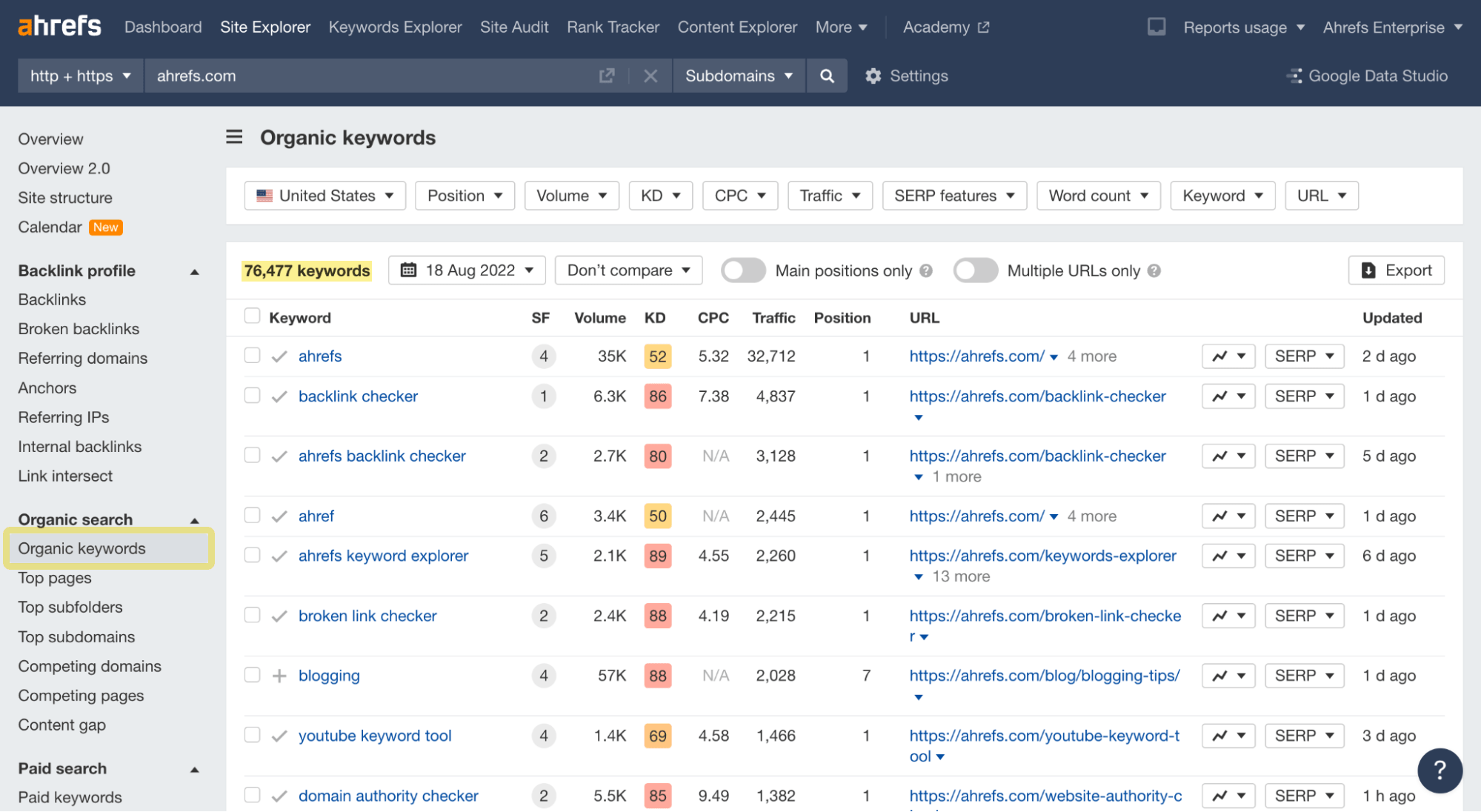
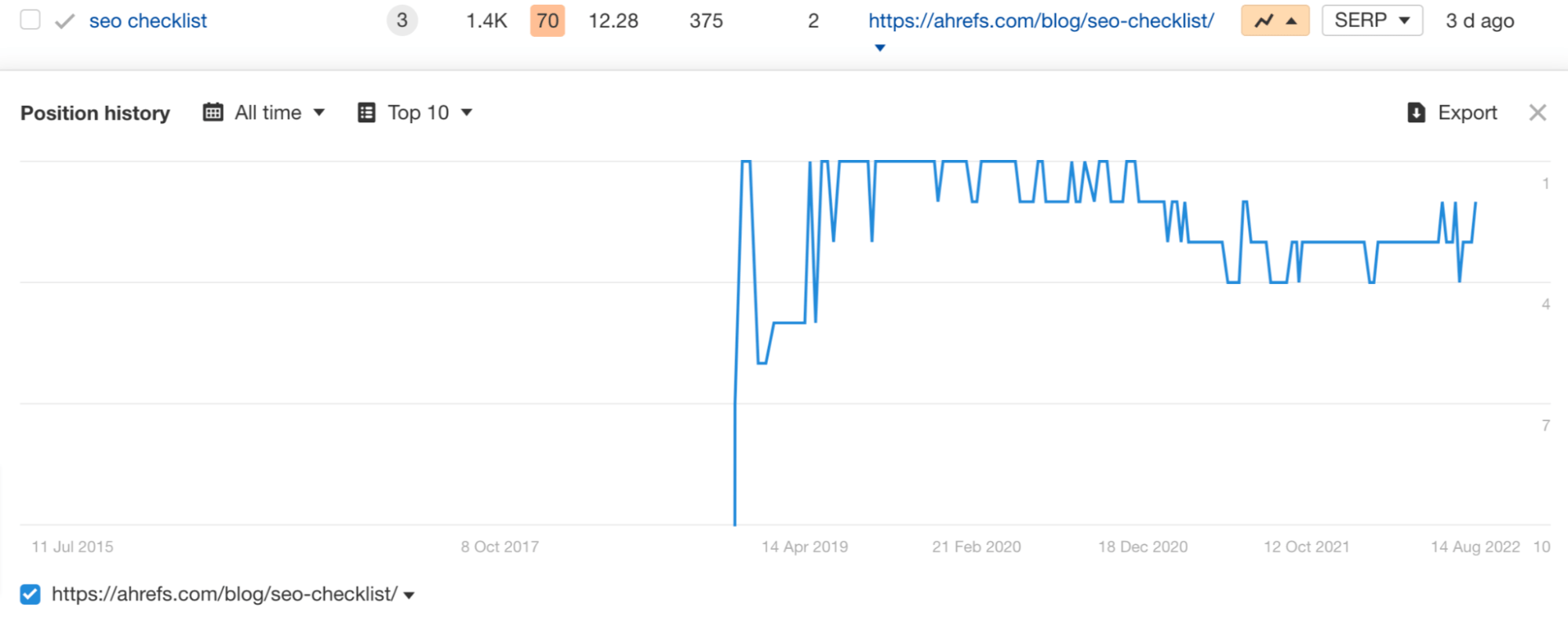
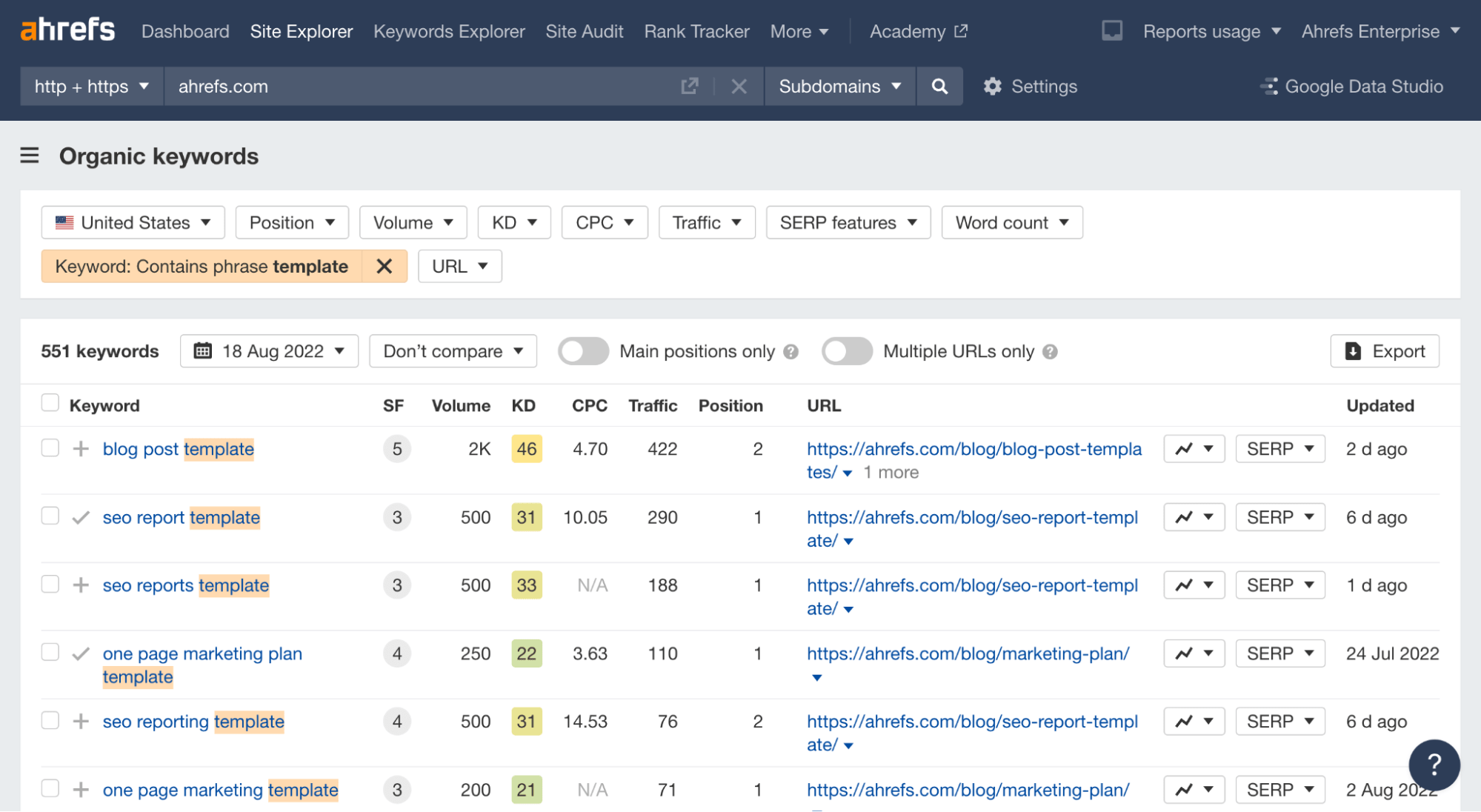
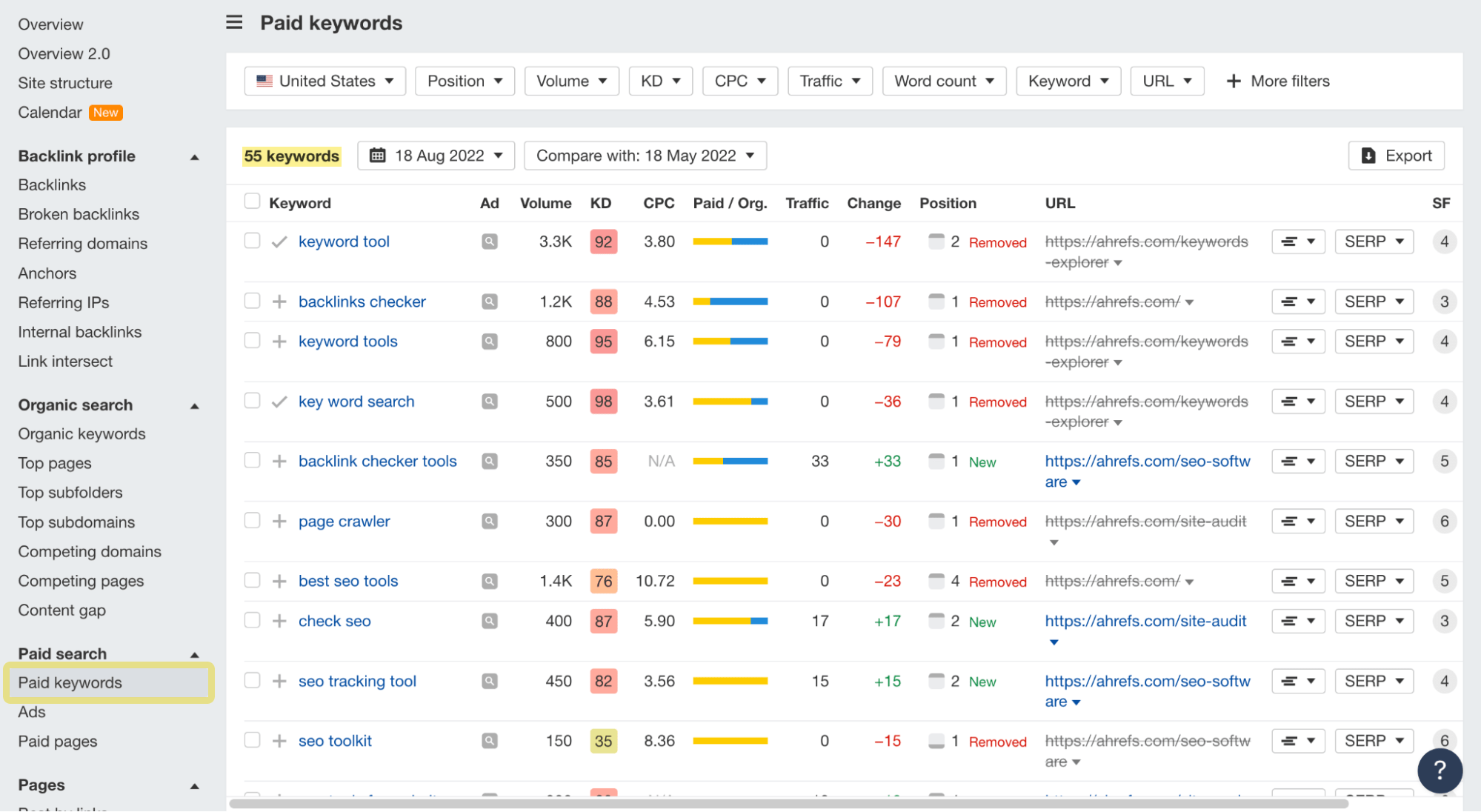
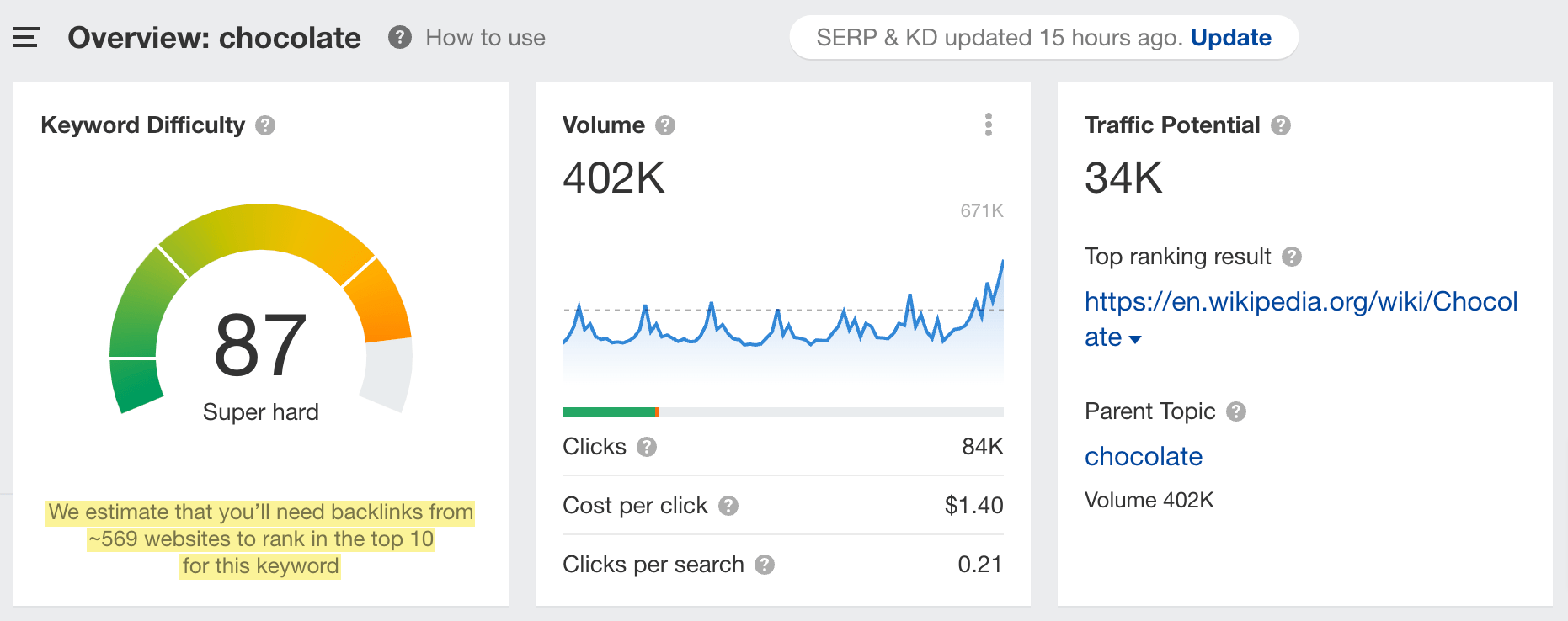
0 Comments